artifact
earlier stage of the project: https://shimo.im/docs/kgkPtgpWXgdDhjwg
project milestone presentation: https://shimo.im/slides/DDtdvPrxYgqygXyD
project milestone presentation in words version: https://shimo.im/docs/9Kj3hhjtCJvcjqr6/read
completed project as in a bigger system: https://shimo.im/docs/dyWCvK6hpHvdCPgk
artifact title
Gamification Currency System: 举手发言 — Raise Your Hand to Speak
artifact label
Humanities Artifact (HA)
introduction
“Gamification Currency System: 举手发言 — Raise Your Hand to Speak” is a project in Microeconomics class that asks us to design a integrated “Moonshot currency system”, and possibly apply it to Moonshot Academy community in the future. The project doesn’t have many requirements, as long as it is a complete system, and involves some form of currency. It is called gamification because we want it to function like a game system, not an actual currency system that has central banks and market, etc. Learners are divided into small groups to create their own systems, and finally all groups will combine their systems together as a class.
Emma, Aimee Du, Henry and I form a group together, and we created a system called “举手发言 — Raise Your Hand to Speak”. This system is socializing system for Moonshot learners. It is a shared space for everyone — we feel that everyone has the desire to share about their lives, appreciate someone or make complaints, so we built a system that satisfies this need. The vision is to provide a more convenient online interaction and feedback system for Moonshot Academy. Compared with social media apps such as Netease Music, Wechat, QQ, and Weibo, our Raise Your Hand to Speak is specially designed for the MSA community.
The system is built up of these functions:
- [Positive Speech]: a place where learners can share positive comments such as sharing music, books, appreciation for someone and warm moments in the community.
- [Negative Speech]: a place where learners can share negative comments such as complains about homeworks and teacher, emotion garbages and life struggles.
- [Life Pieces]: a place where learners can post longer speeches, like blogs.
- [Headline]: speaches with the highest “heat” goes on the headline; the headline can also be bought with the MSA currency for advertisement.
- [Slangs Slay!]: a place for everybody to popularize slangs in MSA
- [Raise Your Hand in Class]: we encourage learners to raise their hand in class, so you cannot play in this system in class.
Since there are so many functions, I am able to explain each one. Please check the artifact for more information.
We watched a video in class that explains what a nice game system looks like, and we used the criteria in the video to assess our own system. Finally, as a class we conbine our systems together to create a larger system, and our Raise Your Hand to Speak belongs to the “Sharing” part of the bigger system. Tiny adjustments are made but overall it is still the same system except now it is part of the larger system.
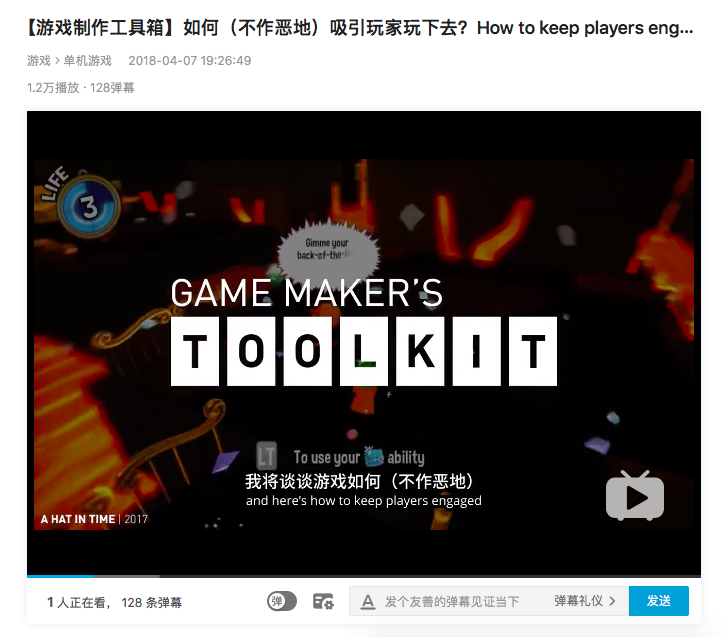
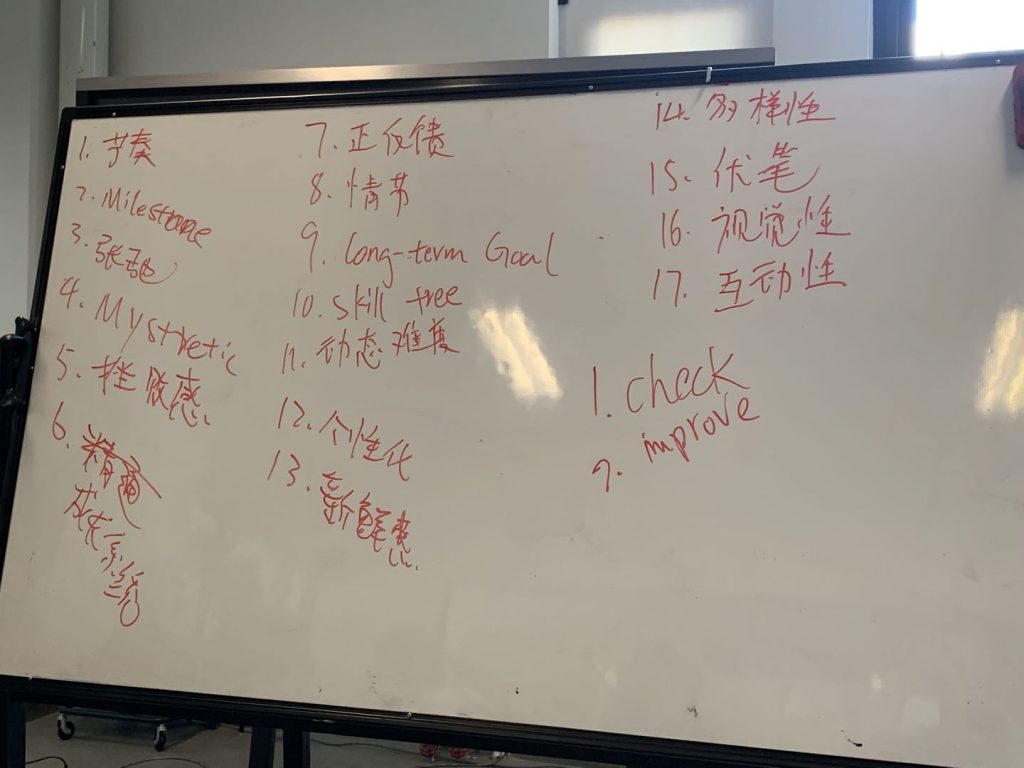
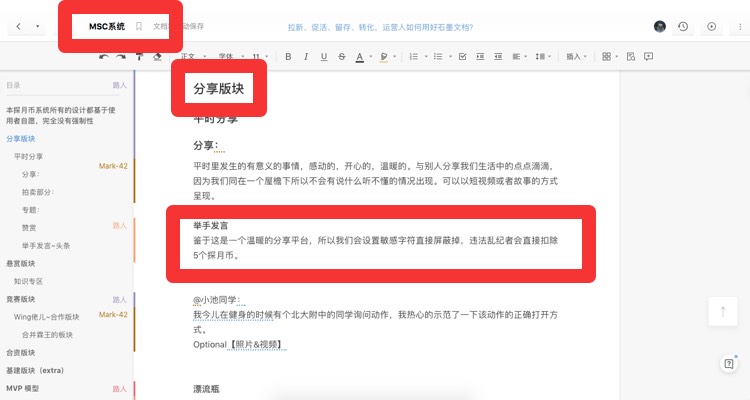
self-reflection
I learned a lot of new knowledge in this project: I learned what is a system, how to make a game system, how to make currency in a system useful and attractive and how to collaborate with others nicely. It is very rare that I can enjoy so much in a project, because normally a project is very formal and academic (just like my SA). However, in this project I had a lot of fun when I’m collaborating with my teammates, and this project is not really formal, but rather allows us to use our imagination make it into a game-like socializing system.
However, it is not a completely imagination-free project, it is actually full of system thinking and design thinking — after all, a good system is very difficult to create. In this project, I think I have reached the developing level of Systems Thinking for most of the skill strands, and I want to explain more about 6A and 6C.
- 6A is about seeing the big picture in a system, identifying issues and goals from a big perspective. At the beginning of the project we always look at our system in a big perspective, and develope functions in this system to reach our one goal and satisfy one need, which is to create a online platform that satisfies people’s need to express and help the community to have more convenient interaction and feedback system. In order to look at our system from different perspectives, we interviwed learners in MSA and made some improvements. For example, Frank suggested that “downvote” “Upvote” and “Craw” (踩、顶、爬)should cost money, and we did take his suggestion in our system. In fact, it becomes a very important cause to the method of weighting in our system. We also compared our system with the game system in the video, and try to meet every criteria.
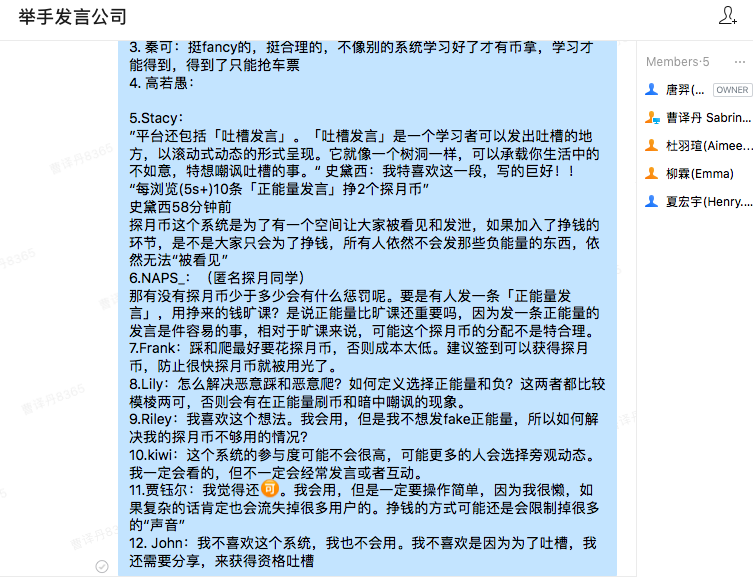
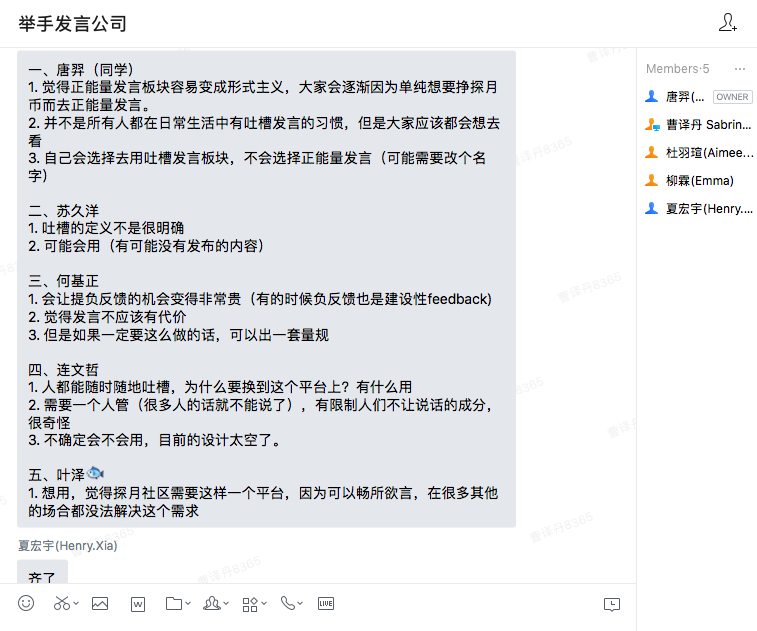
- 6C is about interdependent relationships between the elements in the system, especially about accumulation and feedback relationship. I think in our project the accumulation is the MSA currency, and the feedback to certain acts in the system is also the currency or sometimes others like headline or medal collection. I’ll take an example from our system:
Post 1 [Positive Speech] gets 5 MSA coin –> post 1 [Negative Speech] costs 2 MSA coin –> once reached a limit number of reviewing 10 [Negative Speech], every 5 additional reviews costs 3 MSA coin. These elements in the system balances the gaining and spending of MSA coin, and a the same time encourages learners to review and post more [Positive Speech].
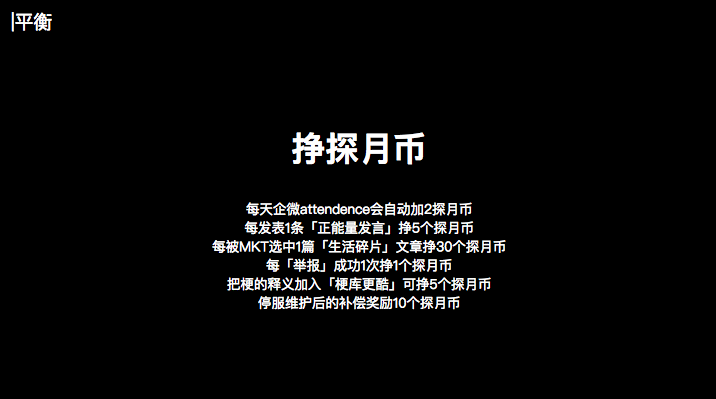
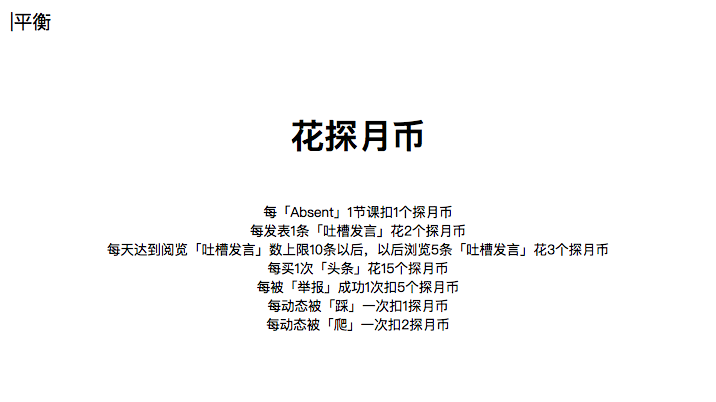
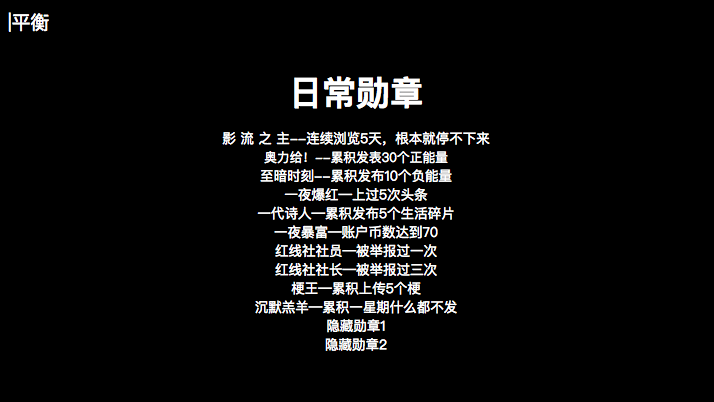
We had a lot of challenges, like deciding on specific coin numbers for different acts in this system, and designing functions and balances that me the game system criteria, but also trying to make it over fancy. At the end, we imagines two cases to test our system, and they worked out very nice, which means our system is a success.
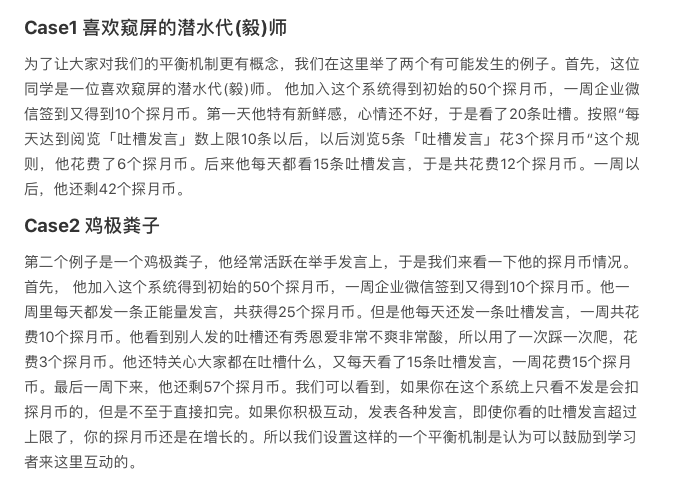
However, there is still great area of improvements. For example we should create a system model, or a system circular map, and also consider about 6F “Leverage Actions”. We also hope that we can actually create a Raise Your Hand to Speak app and use it in MSA, but due to time and financial limitations we couldn’t see the system being actually used.
